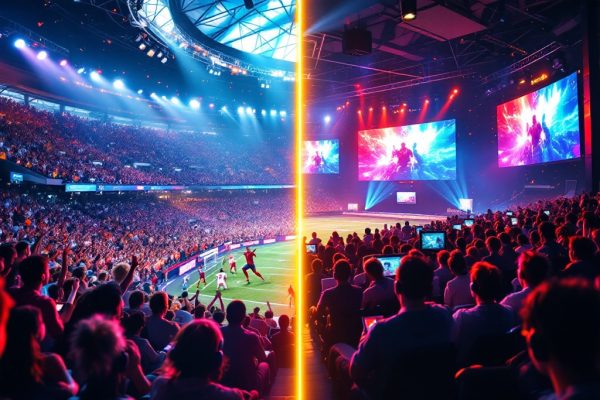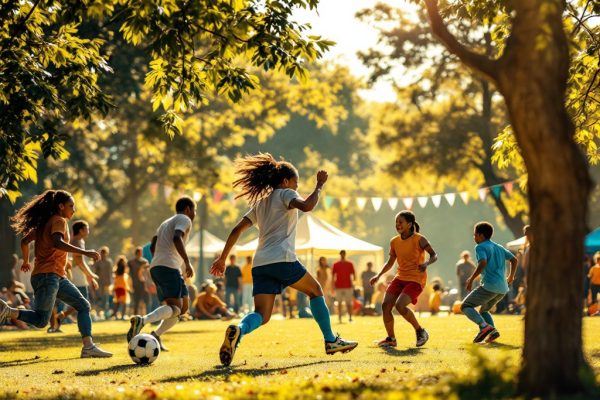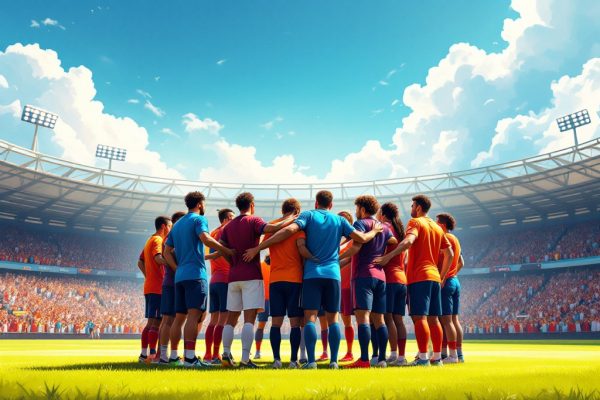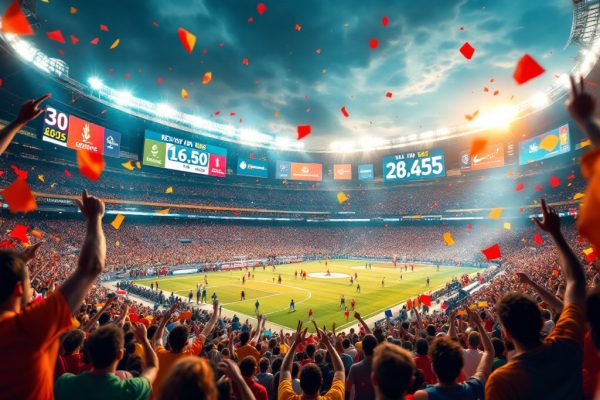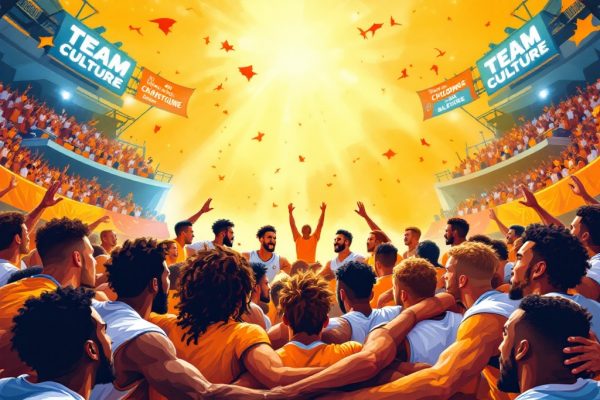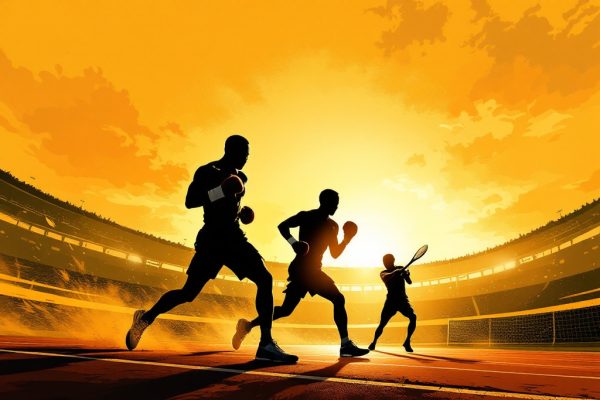All About Olympic Games
Journey through time, from the ancient Olympic Games honoring Zeus to the modern spectacle of international athleticism. Discover the fascinating revival spearheaded by Pierre de Coubertin, and explore the evolution of this global phenomenon, from its humble beginnings with 241 athletes from 14 nations in 1896 to the over 11,300 participants in recent years. Delve into the roles of the IOC, NOCs, and IFs, and uncover the symbolism behind the iconic rings and flame. Learn about the impact and challenges facing the Games, including commercialization and doping scandals. Finally, look ahead to the future of the Olympics, hosted in Paris 2024, Los Angeles 2028, and Brisbane 2032, and discover how the Olympic Refuge Foundation uses sport to empower displaced communities. Explore the rich history and exciting future of the Olympic Games within!
Important information

- The modern Olympic Games were revived in 1896 by Pierre de Coubertin, inspired by the ancient Greek games held in Olympia.
- The Olympics include Summer and Winter Games held every four years, along with the Youth Olympic Games and Paralympic Games.
- The International Olympic Committee (IOC) oversees the games, working with National Olympic Committees (NOCs) and International Federations (IFs).
- The Olympic Games have grown from 14 nations in 1896 to over 200 nations participating, with thousands of athletes competing.
- While the Olympics promote positive impacts like infrastructure development and global unity, challenges include doping scandals, political boycotts, and commercialization concerns.
The Origin and Revival of the Olympic Games
The Olympic Games, originating in ancient Greece, were first recorded in Olympia in 776 BC as a religious festival honoring Zeus. Early competitions included running, wrestling, and chariot racing. Centuries later, in 1896, French educator Pierre de Coubertin revived the games. This sparked global interest in sport and a return to international competition.
The Ancient Olympic Games in Greece
The ancient Olympic Games, held in Olympia, Greece, were a significant religious festival deeply woven into Greek culture and honoring Zeus. These games showcased athletic competitions, with the first recorded event occurring in 776 BC, marking the beginning of a celebrated tradition.
The Modern Revival in the Late 19th Century
Baron Pierre de Coubertin spearheaded the revival of the Olympic Games, culminating in the first modern competition held in Athens in 1896. His powerful vision championed sport as a vehicle for peace and sought to promote international understanding through friendly rivalry.
The First Olympics in Athens, 1896
The 1896 Olympic Games, held in Athens, marked a pivotal moment in sports history, reviving an ancient tradition on a global scale. 241 athletes from 14 nations competed.
The Structure of the Olympic Movement
The International Olympic Committee (IOC) leads the Olympic Movement, selecting host cities and maintaining the rules of the Games.
Besides selecting host cities, the IOC supervises Games preparations and ensures adherence to regulations. In partnership with NOCs and IFs, the IOC manages events, champions fair play, and spreads Olympic values globally.
National Olympic Committees (NOCs) recruit and train athletes, while International Federations (IFs) oversee individual sports worldwide.
NOCs represent their nations, selecting athletes and managing national sports. Meanwhile, IFs establish rules and organize international competitions for specific sports. This joint effort between NOCs, IFs, and the IOC contributes to the success of each Olympic Games.
Role of the International Olympic Committee (IOC)
The International Olympic Committee (IOC) spearheads the Olympic Movement, organizing the Games and selecting host cities. It also establishes the rules and promotes core values such as excellence, friendship, and respect. These values embody the true spirit of Olympism.
National Olympic Committees (NOCs) and International Federations (IFs)
National Olympic Committees (NOCs) champion the Olympic Movement within their respective countries, selecting and sending athletes to the Games. International Federations (IFs) govern individual sports worldwide, setting rules and ensuring adherence to the Olympic Charter to uphold the Games’ integrity. This vital collaboration between NOCs and IFs strengthens global sport through joint training programs and resource sharing, ultimately bolstering the Olympic spirit.
National Olympic Committees (NOCs)
Champion the Olympic Movement in their respective nations, selecting and sending athletes to the Olympic Games.
International Federations (IFs)
Govern individual sports globally, establishing rules and ensuring compliance with the Olympic Charter to maintain the integrity of the Games.
Olympic Games: Types and Participation
The Olympic Games offer a diverse range of athletic competitions:
- The Summer Olympics, held every four years, feature sports like swimming, track and field, and gymnastics.
- Also occurring every four years, the Winter Olympics showcase winter sports such as skiing, snowboarding, and ice hockey.
- The Youth Olympic Games provide a platform for younger athletes aged 14 to 18 to compete and grow.
- The Paralympic Games offer inspiring displays of athleticism from individuals with disabilities.
From its humble beginnings in 1896 with only 14 participating nations, the Olympics have grown significantly. For example, the 2020 Summer Olympics saw over 11,300 athletes competing.
Summer Olympics vs. Winter Olympics
The Summer Olympics, held every four years in even-numbered years, showcase popular sports such as swimming, athletics, and gymnastics.
The Winter Olympics take place two years later, featuring winter sports like skiing, snowboarding, and ice hockey. Both the Summer and Winter Olympics are quadrennial traditions.
Youth Olympic Games and Paralympic Games
The Youth Olympic Games are a major international sporting event for young athletes aged 14 to 18. Held every four years, the Games alternate between summer and winter editions, promoting cultural exchange and global friendship.
The Paralympic Games, another significant global competition, feature multiple sports for athletes with diverse disabilities. Occurring in the same host city immediately following the Olympics, the Paralympics showcase inclusivity and celebrate athletic achievement, regardless of physical limitations. Like the Olympics, the Paralympics also have both summer and winter editions.
Participation: From 14 Nations to Over 11,300 Athletes
The inaugural modern Olympics in 1896 welcomed 241 athletes from 14 nations. Recent Summer Games have expanded dramatically, now showcasing over 11,300 athletes representing more than 200 countries. While the Winter Olympics involve fewer participants, they remain a significant global event. Following the Olympics, the Paralympic Games highlight the increasing inclusion of athletes with disabilities. The recently established Youth Olympic Games provide a competitive international platform for athletes aged 14 to 18.
Symbols and Ceremonies of the Olympic Games
Debuting in 1914, the Olympic flag displays five interlinked rings on a white background, representing the five continents: Africa, Asia, America, Europe, and Oceania. Interestingly, every national flag incorporates at least one of the six Olympic colors: blue, yellow, black, green, red, and white.
The Olympic flame, symbolizing both purity and the pursuit of perfection, journeys from Olympia, Greece, in a torch relay, ultimately reaching the host city’s stadium, connecting the ancient and modern Games.
Opening ceremonies showcase the host country’s unique culture and officially commence the Games. Cultural displays and the symbolic handover to the next host city are featured.
Closing ceremonies mark the conclusion of the Games. They also feature cultural displays and the symbolic handover to the next host city.
Medal presentations celebrate the top three athletes in each event, awarding gold, silver, and bronze medals.
The Olympic Flag and Olympic Rings
Debuted in 1914, the Olympic flag displays five interlocking rings on a white background, symbolizing the unity of Africa, Asia, America, Europe, and Oceania. The rings’ colors—blue, yellow, black, green, and red—were chosen because at least one is present on every national flag, reflecting the Games’ global reach.
Olympic Flame and Torch Relay
The Olympic flame, symbolizing peace, unity, and friendship, begins its journey in Olympia, Greece. A torch relay then carries the flame to the host city, a significant trek culminating in the lighting of the cauldron at the Opening Ceremony. This act powerfully connects the ancient and modern Games. The brightly burning flame serves as a constant reminder of these values throughout the Olympic Games.
Opening and Closing Ceremonies
Opening and closing ceremonies are grand spectacles that bookend the Games. These dazzling productions weave together the host country’s unique culture and the thrill of athletic competition. Artistic performances, athlete parades, and symbolic rituals are key elements, highlighting global unity and celebrating sporting achievement.
Medal Presentation: Gold, Silver, and Bronze
Gold medals reward first-place winners.
Silver medals recognize second-place finishers.
Bronze medals honor athletes in third place.
Olympic medal ceremonies celebrate remarkable athletic achievements, highlighting the athletes’ hard work and dedication.
Olympic Sports and Events
The Olympic Games showcase a diverse range of sports, regularly adding new ones to maintain excitement and relevance. Mixed events promote gender equality. Popular summer sports such as Athletics, Swimming, and Gymnastics draw huge crowds. Winter sports like Skiing, Ice Hockey, and Figure Skating are also major attractions. The Games constantly evolve, recently incorporating trendy sports like Skateboarding, Sport Climbing, and Surfing to engage new fans. This global spectacle truly offers something for everyone.
Popular Summer Sports
- Athletics.
- Swimming.
- Gymnastics.
Major Winter Sports
- Skiing.
- Ice Hockey.
- Figure Skating.
Recently added sports include:
- Skateboarding.
- Sport Climbing.
- Surfing.
Range of Olympic Sports and New Introductions
The Olympic Games showcase a diverse range of sports, from established favorites like athletics, swimming, gymnastics, and basketball to exciting new additions. The program evolves to reflect current trends and promote greater inclusivity. Recent additions include skateboarding, surfing, and sport climbing, demonstrating the Olympics’ adaptability. Breakdancing will debut in Paris in 2024. The International Olympic Committee (IOC) carefully evaluates potential sports based on factors like global appeal and youth engagement, ensuring the Games remain captivating and relevant for years to come.
Mixed Events and Gender Equality
Mixed events are fostering gender equality in sports. By having men and women compete together on the same teams, a powerful message is sent. This is seen in mixed relays for swimming, track, and biathlon. This format extends to other sports like archery, badminton, judo, sailing, table tennis, tennis, and triathlon, further showcasing the Olympic commitment to inclusivity and a more balanced Games.
Impact and Challenges of the Olympic Games
Economic Impact of Hosting the Olympics
Hosting the Olympics can bring significant economic benefits to a city, including:
- improved infrastructure, such as new stadiums and transportation systems.
- increased construction, tourism, and hospitality jobs.
- a boost to the city’s global profile, attracting future investment and tourism.
However, there are also potential economic downsides:
- cost overruns and ongoing maintenance expenses can strain city budgets.
- the displacement of residents and disruption of local businesses can have negative social consequences.
Social Impact of Hosting the Olympics
The Olympics can have profound social impacts, both positive and negative:
- a surge in community pride and urban renewal projects can revitalize cities.
- displacement of residents due to construction and rising costs can disrupt communities.
- the influx of tourists can strain local resources and infrastructure.
Political and Economic Influences
Political and economic factors significantly shape the Olympic Games:
- political disputes can lead to boycotts by participating nations.
- global economic downturns can impact funding and sponsorships, affecting the scale and execution of the Games.
- security concerns, particularly the threat of terrorism, necessitate costly measures.
Controversies and Commercialization
The Olympics have faced numerous controversies:
- doping scandals undermine fair play and tarnish the reputations of athletes and the Games.
- boycotts disrupt athlete participation and create international friction.
The increasing commercialization of the Olympics, driven by sponsorships, broadcasting rights, and merchandise, generates substantial revenue but raises concerns about corporate influence over the Games’ core values.
Economic and Social Impact on Host Cities
Hosting the Olympics can provide a significant economic boost for a city, attracting tourism and investment in new infrastructure. The global spotlight on the host city elevates its international profile and can foster a sense of community.
- Attracts tourism and investment,
- Elevates the city’s international profile,
- Fosters a sense of community.
However, the games also present substantial financial burdens, including the high cost of building stadiums and providing security. Furthermore, hosting can lead to displacement of residents and rising housing costs, creating serious social consequences that must be carefully weighed.
- High cost of building stadiums and security,
- Displacement of residents,
- Rising housing costs.
Political and Economic Issues Affecting the Games
International relations significantly influence sporting events. Political disputes can lead to boycotts, impacting athlete participation. Economic downturns complicate matters further, often reducing funding for both athletes and essential infrastructure. For instance, the COVID-19 pandemic forced the postponement of the 2020 Tokyo Olympics, demonstrating the disruptive power of global events. Furthermore, security threats, including terrorism, pose a constant challenge, impacting both host nations and participating countries.
Olympic Controversies: Doping and Boycotts
Political tensions and doping scandals have significantly impacted the Olympic Games. The 1980 Moscow Olympics faced a US boycott due to the Soviet invasion of Afghanistan, and the Soviet Union and its allies retaliated by boycotting the 1984 Los Angeles Games. Doping scandals, such as Ben Johnson’s forfeited gold medal at the 1988 Seoul Olympics for steroid use, and systematic doping programs like Russia’s, further undermine the integrity of the Games, leading to bans and sanctions.
Commercialisation and Olympic Marketing
The Olympic Games have evolved into a massive commercial enterprise, driven by marketing and branding. This generates substantial revenue through sponsorships, broadcasting rights, and merchandise sales. However, this commercial focus sparks debate about balancing profit and the Olympic spirit. Critics argue that the pursuit of money overshadows the Games’ core values of athletic achievement and cultural exchange. Conversely, proponents highlight the crucial funding commercialization provides for athletes and host cities, viewing it as essential for the modern Games. The commercialization of the Olympics presents a complex dilemma, raising questions about the true priorities of this global event. Is it about celebrating human potential and international unity or maximizing profits? The debate continues, with strong arguments on both sides.
Arguments Against Commercialization
- Overshadows core values: critics argue that the pursuit of profit overshadows the Olympic spirit of athletic achievement and cultural exchange.
- Focus on money: the emphasis on commercial deals can detract from the athletes’ dedication and the purity of competition.
- Exploitation of host cities: some argue that host cities are often burdened with excessive costs and infrastructure demands, primarily benefiting corporations rather than the local population.
Arguments For Commercialization
- Essential funding: commercialization provides crucial funding for athletes’ training, travel, and facilities, as well as for hosting the Games themselves.
- Global reach: sponsorships and media deals allow the Games to reach a wider global audience, promoting sports and international understanding.
- Economic benefits: the Olympics can generate significant revenue and create jobs for host cities, boosting their economies.
The Legacy and Future of the Olympic Games
The Olympic Games leave a lasting legacy, extending far beyond the host city’s boundaries. New stadiums and improved transportation are just some of the visible advantages. Moreover, the Games act as a source of inspiration, fostering community pride and promoting athletic participation. To further this impact, the International Olympic Committee established the Olympic Refuge Foundation, which utilizes the power of sport to aid displaced communities.
Upcoming Olympic Games
- Paris 2024.
- Los Angeles 2028.
- Brisbane 2032.
Objectives of Future Games
- Sustainability.
- Inclusivity.
- Innovation.
Olympic Legacy: Long-term Effects on Communities
The Olympics offer host cities numerous long-term advantages, such as improved infrastructure through new stadiums and transportation networks. This investment attracts tourists, boosting the local economy. A sense of community pride is also fostered.
- improved infrastructure,
- boosting the local economy,
- sense of community pride.
However, careful planning is essential to avoid potential pitfalls like financial strain from underutilized venues after the Games conclude. Sustainable management is key to ensuring a positive, lasting Olympic legacy.
- avoid financial strain,
- ensure positive Olympic legacy.
Upcoming Games: Paris 2024, Los Angeles 2028, Brisbane 2032
The 2024 Summer Olympics will be held in Paris.
Los Angeles will host the 2028 Summer Olympics.
Brisbane will host the 2032 Summer Olympics.
Role of the Olympic Refuge Foundation
The Olympic Refuge Foundation empowers young refugees through sport, offering protection, fostering growth, and building resilience. The Foundation creates safe spaces and opportunities that promote social inclusion and well-being, ultimately transforming their lives.




